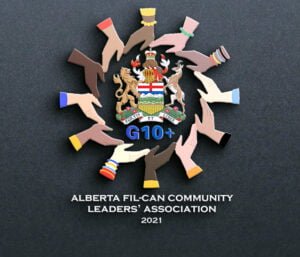
Among Filipino communities in rural Alberta, mental health has varied aspects and addressing them needs multiple approaches, including regular social activities in the community, education and information, reducing stigma and ensuring access to services. The importance of advocating for systemic changes to improve mental health resources was likewise raised. What is clear is that the community is grappling with two cultural norms around mental health, navigating between traditional Filipino perspectives and Canadian healthcare and wellness approaches and systems. Addressing these issues requires understanding how Filipino culture can help in nurturing mental wellness, in facilitating ongoing dialogue with service providers, and in building strong partnerships between community members and public institutions.

Filipinos often say that they come to Canada to seek a better life for themselves and especially a better future for their children. It is important therefore to understand how young Filipinos are faring in Alberta’s smaller towns and cities and what can be done to help them achieve successes in life. In rural Alberta, Filipino youth benefit from the supportive presence of families and close-knit community networks. On the other hand, they experience challenges and pressures that are distinct to their cultural and geographic contexts. First generation parents, who have to strive hard for their families’ economic stability and keep their cultural identity, often have strong expectations on how their children should grow up, the careers they will pursue and the values that they need to live by. In many situations, Filipino youth go to schools and live in neighbourhoods that are not as racially diverse as those in Alberta’s larger cities. Often, they have to navigate between the cultural and social norms of their parents and the Filipino community and their own emerging identities and experiences in the Canadian landscape. Despite all these pressures, many young Filipinos are building resilience. But there are troubling signs that need to be recognized and addressed. A growing number of youths are not doing well in school. Issues of identity, alienation and family conflict are growing. A recent spate of suicide attempts in several towns has shocked the community. To address these emerging issues and to support youth actualize their aspirations, it is important that Filipino youth themselves need to be engaged so that they can voice their concerns and perspectives and lead in finding meaningful and effective solutions.

Families are an important source of support and resilience for Filipinos. Strong familial bonds enable individuals to endure difficulties and the economic and social pressures related to immigration and settlement. Stresses and breakdowns in family relationships if not addressed lead to and amplify other issues like mental health, youth isolation and domestic violence. Many Filipino families in rural Alberta are experiencing these stresses and incidences of the latter issues are growing.

Filipinos move to smaller cities and municipalities in Alberta because of job opportunities and to connect with families, townmates and friends who have previously arrived and settled. Data from Statistics Canada show that Filipinos in Alberta are mainly employed in the service, health and caregiving, administrative, trade and manufacturing sectors. This spread is true among Filipinos in rural Alberta. Not many occupy more senior, technical and professional positions. This is despite the fact that Filipinos are skilled in their jobs and can work across various industries and often come with good education and work experiences. There are many barriers that hamper upward career and economic advancement for Filipinos, including the non-recognition of internationally acquired credentials and experiences, being stuck in dead-end jobs, immediate economic pressures to provide for families, discriminatory workplace promotion practices, and lack of opportunities for career development. Many Filipinos set up small enterprises to augment their income and to be more economically mobile. But they also often face barriers to grow their businesses. Economic prosperity is important for Filipinos to continue to live in smaller towns and municipalities. If not addressed, many will consider moving to the larger cities for better opportunities.

Filipinos comprise one of the fastest growing populations in Alberta’s smaller cities and municipalities. With diligent work ethics, commitment and adaptability, they provide a critical workforce in the local economies, especially in health care, service and agricultural sectors. Despite these, Filipino organizations report a lack of resources and services to newcomer settlement and integration. The resources that are currently available need to be more culturally appropriate and relevant to the specific realities of Filipino newcomers. This situation results in many newcomers unable to find timely and relevant supports for the issues that their families face in the workplace, schools, and the community. This becomes more urgent on issues that informal supports cannot fully address, especially around navigating public systems, pursuing economic advancement and addressing racism and discrimination.

The Filipino community in rural Alberta is relatively young, with a huge majority in the working age demographic. Most adults are working full-time employment with many taking on additional jobs to make ends meet. The number of children and youth is growing. The population of seniors is still small but increasing. A key concern that people have is how to be healthy enough to work. Their experience during the Covid-19 pandemic exposed the distinct health vulnerabilities of Filipinos because many of them are front line workers. While the pandemic was an outlier event, it nevertheless put the importance of health and wellness in the minds of Filipinos. There is an increasing understanding that health should not be conceived merely as the absence of sickness but should include mental and physical well-being and spiritual health. And within this framework, Filipinos see the importance of social connections, faith and community involvement as part of their overall health. Filipinos in rural Alberta experience the overall state of the province’s healthcare system – inaccessibility of health resources, the lack of doctors, nurses and clinics. Compounding this is the cultural disparity between how health services are currently delivered and how Filipinos perceive their own health and how the system works. This points to the need for ongoing dialogue between the health system and the community.

Culture and heritage are understood and appreciated through different layers. Filipinos understand the importance of culture in building cohesion and a sense of identity as a community. It is a source of pride and visibility and provides a shorthand in describing who are Filipinos in Alberta. Thus, cultural celebrations often highlight the most visible and audible elements of the community – dances, songs, food and art. Culture also involves invoking a system of values and norms that Filipinos draw from and influence how they interact with each other and the larger Canadian society, and in this case rural Alberta. That is why bayanihan resonates as a perceived value because it helps encapsulate Filipinos’ intuition for community building, for coming together to help in times of crisis and to share in times of plenty. There are other cultural values that underpin family and community relationships that are important considerations in the discussion of social issues. But culture and heritage also denote the Filipino community’s ability to visibly show its contribution to the broader socio-cultural landscape of Canada and Alberta. When Alberta proclaimed June as Philippine Heritage Month in 2018, it created a platform for a myriad of activities to be organized across the province. In rural Alberta, it enabled Filipino communities to visibly celebrate, to engage with the broader community and to stake their presence in their new home. It is like declaring: “We are here! This is who we are! And we have a lot to offer!” The proclamation also opened conversations about how Filipino culture need to be reflected in the public systems. This includes the adoption of Filipino language and culture into the provincial school curriculum, and more recently, the incorporation of culturally appropriate services provided by the health system. Conversations in the workshop surfaced the issue of how the Filipino community in Alberta can have a unified, or at least coordinated, Filipino cultural heritage strategy. This will strengthen and make more sustainable the community’s cultural and heritage-related efforts. This will also build the community’s collective capacity to influence decisions by and secure resources from public systems working on issues of history, multiculturalism and diversity. If the community is able to do this, it will expand the work from cultural preservation to staking claim on the shaping of Alberta’s socio-cultural landscape.

Our primary goal is to build a broader, stronger, and effective collaboration among Filipino-Canadians in rural Alberta and beyond.
Suite 4, # 405 Spray Avenue, Banff, Box 5000,
T1L 1J9
Phone: +1 (403) 497-4483.
E-mail:info@afcla-g10.com
Website:https://afcla-g10.com